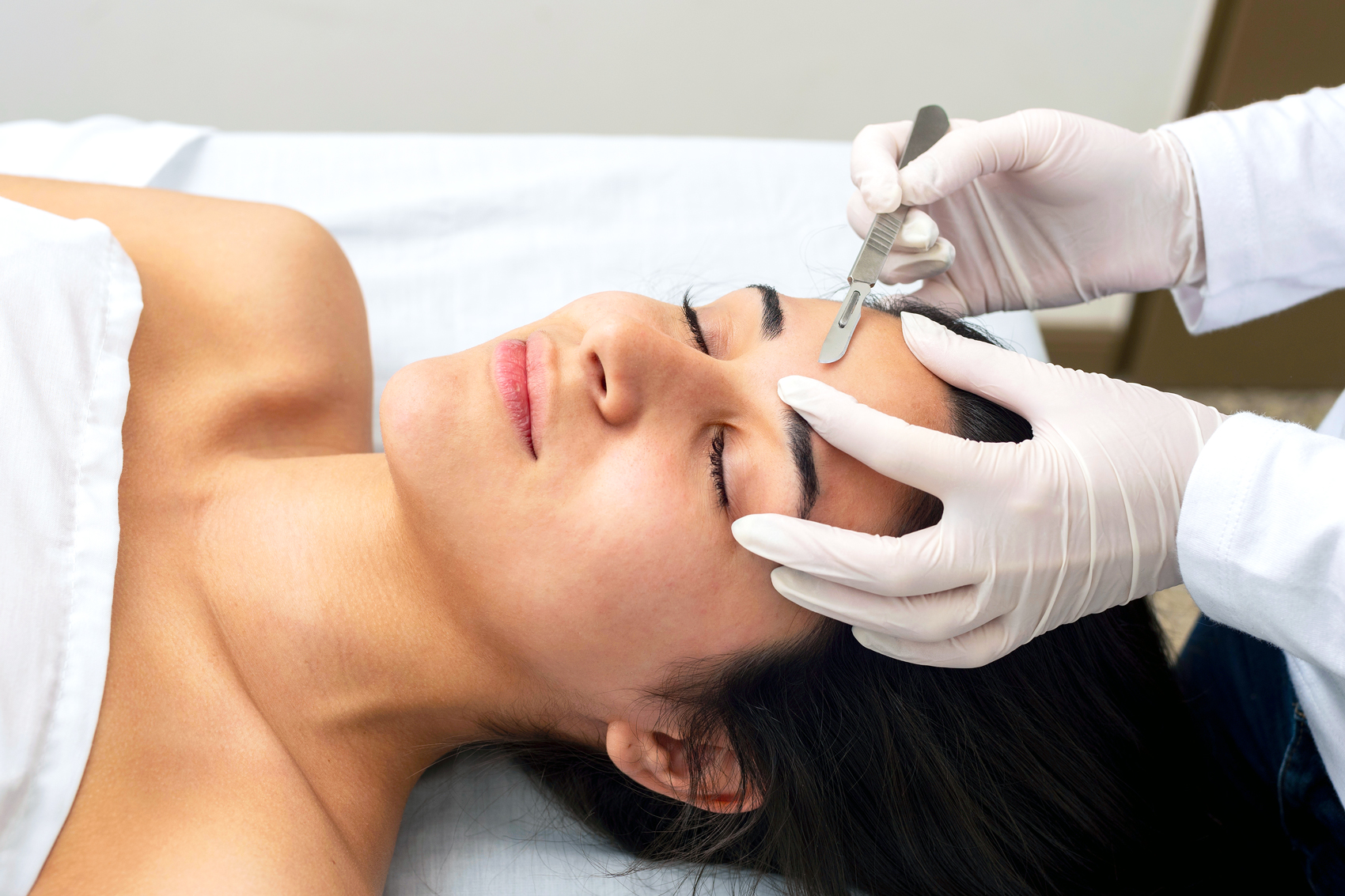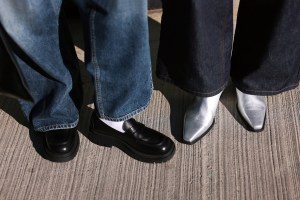We independently evaluate all recommended products and services. If you click on links we provide, we may receive compensation.
Taking a scalpel to your face might sound terrifying, but dermaplaning is actually a pretty common — and, if done correctly, relatively safe — practice. Removing vellus hair (superfine facial hair also known as peach fuzz) is a beauty treatment with roots that trace to old Hollywood and beyond. But with the proliferation of HD cameras (and filming our every waking moment), the appeal of achieving a peach fuzz-free face has become commonplace for those outside of the entertainment industry, too. Dermaplaning benefits are twofold: Scraping the top layer of skin not only rids the face of hair, but also clears away dead skin cells. This exfoliation stimulates the skin to produce collagen and cell turnover, which in turn can minimize fine lines, as well as make your makeup go on smoother.
The safest way to dermaplane is to see a professional, such as an esthetician, for a treatment. It is possible to do at home, but considering you’re using a blade (even a dull one), you have to be careful. You only need a very light touch to remove the hair — be too heavy-handed and risk nicking your skin, possibly leading to an infection. You’ll also want to skip dermaplaning if you have an active breakout, eczema flare-up, or other skin conditions as it can exacerbate symptoms.
Christina Uzzardi, esthetician and founder of Cheeks + co, suggests using the following method at home: First, thoroughly cleanse and tone skin to ensure no residue from skin care, makeup, or oil remains. Next, apply a light layer of a medium-weight oil (such as Cheeks + co GoldenState Oil) to ensure the dermaplane tool glides across (and doesn’t pull at) the skin. Finally, hold a medical-grade, stainless steel scalpel at a 45-degree angle and sweep it across the face using medium pressure. (If you’re not confident in using a blade, a device such as DermaFlash Luxe+ can help take the guesswork out of the practice.)
Though some fear that vellus hair will grow back darker and/or thicker, Uzzardi says this is a common misunderstanding. “Dermaplaning does not affect the hair growth in any way whatsoever, no matter how often you dermaplane,” she says. Phew.
This article is for general informational purposes only.
Affiliate Disclaimer Medical Disclaimer
















 Unique Beauty is free for all users.
Unique Beauty is free for all users.